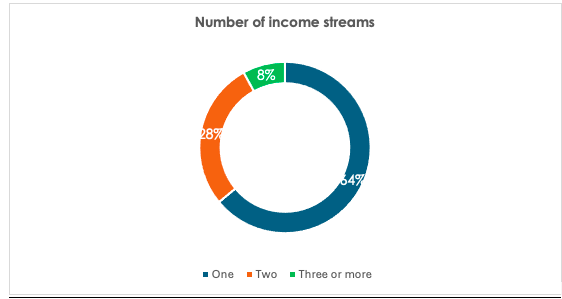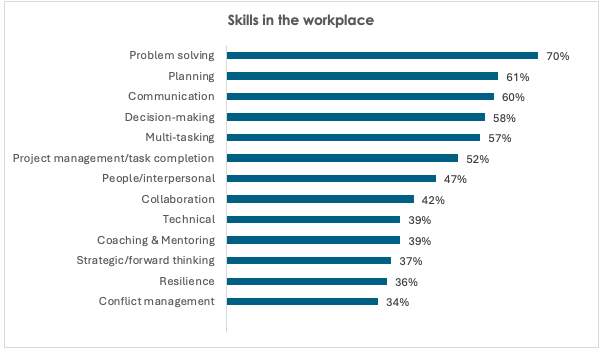In August 2024, infoQuest, a South African online research company, surveyed 300 women across South Africa from diverse demographics, to explore their behaviours and attitudes towards financial and workplace issues.
The findings are compared with a 2022 survey of a similar sample, revealing some positive shifts. This article outlines the key insights from the research.
Over the past two years, there have been some priority shifts for women when it comes to managing their finances and other lifestyle choices.
Ensuring there is food on the table, maintaining savings, and providing for children’s education continue to be the top three priorities for South African women.
However, concerns such as paying off debt, job security and meeting bond or rent payments have become increasingly pressing.
Financial pressures
Additionally, around 50% of mothers are single parents, many South African women of whom are the primary breadwinners. This dual responsibility of managing both work and home life adds significant stress.
The priority placed on learning new skills for better job prospects and engaging in physical exercise have declined over the past two years.
This trend may indicate that individuals are increasingly time-constrained, with less opportunity to focus on activities beyond work and providing for their families.
It could also reflect financial pressures, as more resources are directed towards paying off debt and managing the rising cost of living, leaving fewer funds available for personal development and leisure.
|
Priorities
|
2022 |
2024 |
|
Making sure I have enough groceries for the month |
68% |
66% |
|
Making sure I have some savings |
63% |
61% |
|
Providing for my children’s education |
52% |
51% |
|
Learning or studying for a new skill so that I have more job options |
47% |
41% |
|
Paying off my debt |
39% |
45% |
|
Job security |
38% |
43% |
|
Making sure I keep in contact with friends/family |
39% |
37% |
|
Physical exercising |
32% |
24% |
|
Job satisfaction |
25% |
25% |
|
Providing for my elderly parents |
24% |
28% |
|
Making sure I can pay my bond repayments/rent every month |
23% |
29% |
|
Providing for my retirement |
22% |
25% |
|
Planning for the December holidays |
14% |
13% |
Despite the challenges, 58% of women report an improvement in their work-life balance compared to a year ago, while about a third have seen a decline.
“This highlights the resilience and determination of women in balancing their professional responsibilities with personal and family commitments,” says Claire Heckrath, MD of infoQuest.
“The flexibility and autonomy of remote work have empowered women to manage their time more effectively. Whether it’s handling household tasks or picking up children from school, women can be hands-on mothers while still fulfilling their professional roles, reducing stress and fostering a more harmonious work-life balance.”

Approximately one in three women have more than one source of income, reflecting the growing financial pressures that many face. This trend has been steadily increasing over the years.
“Of course, while working multiple jobs can have significant advantages, like greater financial stability and resilience against economic fluctuations, it also presents significant challenges in terms of time and energy,” says Heckrath.
“Financial strain may drive women to seek additional income, but it also highlights their entrepreneurial spirit and tenacity. The ability to adapt and ‘make a plan’ is truly admirable.”

Working women were asked what skills they believe they bring to the workplace. Problem solving, planning and communication skills were the top three. This highlights women’s ability to foster dynamic, adaptable, and cohesive working environments.

It is encouraging to note that there have been some positive shifts in workplace gender dynamics compared with two years ago.
The most significant shift is the growing belief that women are receiving the same opportunities as men in the workplace, with agreement rising from 49% in 2022, to 62% in 2024. This indicates clear progress toward achieving gender equality in the workplace.
|
Workplace dynamics
|
2022 |
2024 |
|
In the workplace, women have more decision-making power than before
|
51% |
55% |
|
In the workplace, women are being employed in more senior jobs than before
|
62% |
61% |
|
In the workplace, women are remunerated the same as their male colleagues for the same job
|
53% |
57% |
|
In the workplace, women are given the same opportunities as men
|
49% |
62% |
|
In the company I work for, transformation is taking place
|
66% |
64% |
|
In the company I work for, women are empowered to make important decisions
|
64% |
67% |
South African women are making strides in enhancing their financial well-being by actively reducing debt and building savings, which will enable them to be more financially empowered.
Many women are juggling multiple jobs, which, though stressful, also fosters skills development and helps them reach their financial goals.
Additionally, they are feeling more positive about their work-life balance, contributing to a greater sense of optimism. In the workplace, women are also feeling less gender discrimination overall.
All of these factors bode well for the advancement and success of women, whether it is on a personal or professional level. Here’s to the women who, with unwavering resilience, continue to break barriers and carve out new paths to financial empowerment and workplace equality.














